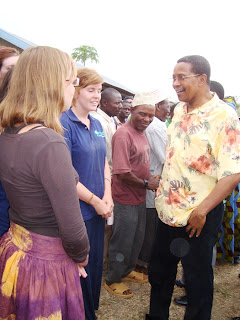Norconsult, charged with corruption related counts, has been acquitted but Norway’s court found the firm’s three consultants guilty of bribing Dar es Salaam Water and Sewerage Authority (DAWASA) officials.
The firm survived a scare as the court’s ruling, issued this week, took into account the dramatic consequences a guilty conviction would have had for the firm – debarment from public procurement in Norway.
However, the three consultants of Norconsult - the biggest engineering firm in Norway - have been given suspended prison sentences of between two and six months.
Norway’s economic crime unit, Økokrim charged the Norconsult employees of being involved in paying bribes amounting to $172,700 to officials at DAWASA in a World Bank sponsored project.
The firm was fined $690, 800 when the police finalised their investigation in the fall of 2009, but refused to pay. Instead, the firm opted to clear its name in court.
The case relates to a water and sanitation contract Norconsult won as part of a joint venture with the Dutch registered firm, the Elmcrest Group and MMK Project Services Ltd (MMK). Norconsult managed the project. According to the charges, “it was understood that five per cent of the contractual amount would be paid” to employees of the water authority.
The verdict of the Oslo District Court states that a 60-year-old Norwegian who was Norconsult’s top man in the project is convicted of being complicit in paying $ 109,000 to DAWASA staff members during 2003-2006.
The identity of the man in question was not given, neither the exact position he held in Norconsult.
He has been found guilty of providing money to a representative of MMK to be used to pay bribes to DAWASA employees. He is sentenced to six months in prison (two months suspended).
Norconsult is a popular firm in the engineering consulting industry in Tanzania as it has been involved in a number of projects.
According to the court, the owner of The Elmcrest Group and the main owner of MMK Project Services Ltd, as well as the other members in the joint venture, were leading players in the scam.
They have denied any involvement in corruption in written statements to the World Bank, but have refused to be interrogated by Norwegian police, despite assurances that charges would not be pressed.
The verdict stated categorically that Norconsult representatives were not involved in setting up the corruption deal, but learned about it later in October 2003.
It states further that Norconsult’s top man in the project should have reported the scam internally to the leadership and ensured that no payments were made.
Instead, he tried to keep Norconsult out of it. He feared if he took action it would be known to the public… “it would damage Norconsult’s position”. According to the verdict, Norconsult was “tricked into the project on false terms” by the other members of the joint venture.
A second Norconsult staff who worked on the project starting in 2004 is sentenced to three months in prison (suspended) for having been involved in bribery payments of $26,000.
A third Norconsult employee, responsible for internal auditing of the project, is convicted for having contributed to payments of $49,000 in bribes. He is sentenced to two months in prison (suspended).
According to the verdict, he actively prevented the payments from being camouflaged as “dubious invoices” for supplies to the joint venture, and in his bookkeeping he referred to the payments as a “loan” to an MKK representative, since documentation for the payments was lacking. This contributed to clarifying what happened.
In the third employee’s files, investigators also found a spreadsheet showing payments that were referred to as “commercial expenses.” The spreadsheet was made by The Elmcrest Group’s main owner, according to the verdict.
Under a column with the heading “names” in the spreadsheet, there are initials that correspond with the names of top officials in DAWASA management. They are identified with their full names in the Norwegian verdict. The budget for payments to these DAWASA officials amounted to $247,000.
One of the three convicted individuals does not work for Norconsult anymore. The verdict also criticises Norconsult, saying “corruption should have been mentioned explicitly in [the company’s] ethical guidelines,” and there should have been guidance about how to handle corruption.
The court says that taken into account the “competent and loyal” staff Norconsult had on the project in Tanzania, there is reason to believe that the problems could have been prevented if proper guidelines had been in place.
The court concludes that Norconsult could have prevented corruption in the project, but draws a line between what it should be criticised for and what should result in a legal penalty.
Norconsult did not achieve any significant advantage and was not complicit in making the corruption deals. The verdict states that none of the three top levels of management in Norconsult knew about the illicit payments until they were informed by the World Bank about its suspicions.
According to the verdict, the company took action when they learned what had happened and later reported it to the police, although this happened after the story broke in the press.
SOURCE: GUARDIAN ON SUNDAY


























